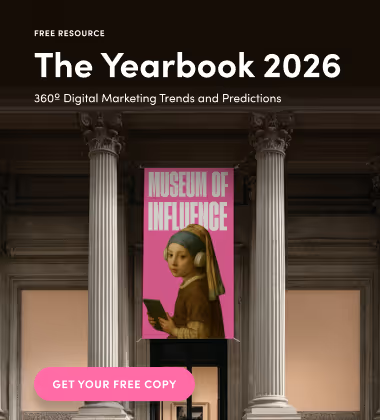The magnitude of the Olympics is unparalleled. The global multisport event brings people together from all over the planet like no other event can — with the aim of building a better world through solidarity and fair play. When sports are practised without discrimination and in the Olympic spirit, it truly has the power to bring the world closer together!
Considering the vastness of this global event, it’s no surprise that the International Olympic Committee (IOC) implements strict rules to ensure that the Olympic Movement can continue to achieve its goal. One of these adherences is Rule 40 — and navigating it can be as challenging as the Olympic sports themselves.
What is Rule 40 and Why Was It Established?
The massive global appeal of the Olympic Games puts the participating athletes on a powerful platform of visibility. The whole world is watching them — and this serves as the perfect opportunity for brands to form partnerships with these athletes to, in turn, amplify their own visibility.
In order to protect the Olympic environment from over-commercialization and to protect the health of the Olympic Movement, Rule 40 was established and introduced into the Olympic Charter in 1991. Essentially, it mandates that Olympians cannot receive endorsements or paid partnerships for a 40-day period leading up to and during the Olympic Games. For the Tokyo games, Rule 40 went into effect as of July 13 through to August 10, 2021.
The IOC wishes to ensure that the focus remains on the sports performances of participating athletes. If you’ve noticed, even the Olympic venue features restricted branding and is not saturated with advertisements around the playing field.
Additionally, the IOC runs its very own international marketing program. This global sponsorship program enables the IOC to fund all national Olympic teams across the globe, regardless of the success of their athletes, whether it be commercially or in the field of sports. These funds aren’t just shared with all participating countries to support the sports development operations of their National Olympic Committees, but the revenue is also utilized to fund the hosting of each of the Olympic Games themselves.
This marketing program of the IOC grants partners the exclusive right to associate with the Olympic Movement and to use the Olympic logo, marks, and images for advertisement. The restrictions placed on non-sponsors of the Olympic Games allow the distinctiveness of official Olympic marketing programs to be upheld and reduces the ability for brands to engage in Ambush or Guerrilla-style marketing tactics— which ultimately sustains the funding of the Olympic organization and the participating athletes worldwide. Out of respect for this valuable and unique partnership, Rule 40 has been strictly implemented and monitored by the IOC.

What to Keep in Mind When Navigating Rule 40
If you are a brand that is not an official partner of the Olympics but sponsors a competing athlete, trainer, coach, or official who will be participating in the Games, then these are some key principles that are important to keep in mind in order to successfully navigate Rule 40.
The following principles of Rule 40 apply to all forms of commercial promotion, whether it is paid or not. Social media posts, online advertising, TV and radio advertisements, billboards, on-product and in-store promotions, public relations, and the lending or gifting of products to Olympic participants are all covered by these principles.
1. Do Not Use Any Olympic Properties
Olympic properties are for the exclusive use of the Games’ official partners. To make sure you’re designing an advertisement that abides by the laws of Rule 40, do not use the following elements:
- The names of Olympic teams or the country being represented (e.g. Team Canada)
- The words “The Games”, “The Olympics”, “Olympian”, and “Olympiad”
- The Olympic symbol and motto
- National Olympic Committee and Olympic Team emblems
- The name of the host city and the year of the Olympic Games (e.g. Tokyo 2020)
- Images that were taken inside the venue of the Olympics
2. Create “Generic” Advertising
Generic advertisement is specific to the athlete’s relationship with the personal sponsor. This means there is no implied association with the Olympic Games or the team being represented.
According to the IOC’s guidelines, generic advertising is defined as any advertising of a company or brand:
- Where the only connection between, on one hand, Tokyo 2020, the IOC, the Tokyo 2020 OCOG, an NOC and/or an NOC’s national Olympic team and, on the other hand, the relevant marketing activity, is the fact that the advertising uses a Participant’s Image,
- Which has been in the market for at least ninety (90) days before the Games Period, and
- Which is run consistently and not materially escalated during the Games Period.
3. Be Thanked and Congratulate
The IOC has changed a few rules over the years. The governing body made headlines in 2016 when they banned all non-Olympic sponsors from thanking their athletes and vice versa on social media and all marketing platforms for the Rio Games.
Today, athletes are permitted to thank their personal sponsors during the Games period. On social media, they may thank their personal sponsors a total of seven times, as long as it is generic in nature and does not contain imagery from the Games or product references.
At the same time, personal sponsors are permitted to post one congratulatory message on social media during the period of the Games, provided that it is generic, doesn’t contain product references, or imagery from the event.
This change surrounding Rule 40 is seen as a huge win within the industry as an opportunity for visibility for personal sponsors. Brands can really benefit from this updated rule and should design advertisements strategically to truly maximize the outcome of their marketing and advertising efforts.
4. Be Part of the Conversation Strategically
It’s more than possible to work around the keyword “Olympics.”
The Summer Olympics may be coming up, but since Rule 40 can be tricky for some brands, why not consider working with Winter Olympians at this time instead (and vice-versa for Summer Olympians when the Winter Olympics are coming up)? This way, you become part of the “Olympic” conversation while steering clear of all violations that may arise if Rule 40 isn’t navigated cautiously enough.
This summer, we will be launching a social media campaign for our client, Six Star Pro Nutrition profiling their roster of Winter Olympic athletes including U.S. Bobsledder Josh Williamson, U.S. Women’s Hockey Player Kali Flanagan, and U.S. snowboard phenom Toby Miller. The campaign emphasizes that Olympic prep starts years and months in advance and Six Star Pro Nutrition is their go-to nutrition supplement to get them Games ready for 2022.

5. Reach Out and Mention Rule 40
As a marketer, acknowledging that you understand Rule 40's guidelines in your initial outreach to athletes will help save you a lot of time. Without failure, every agent will bring up this rule. It’s important to make it clear that you’re reaching out in a well-informed manner. This will make way for a smoother process and a stronger partnership.
Navigate Rule 40 Like a Pro
As a brand, it takes a lot of creativity to create “generic” advertisements and still be able to maximize the outcome of your advertising efforts. But, as long as you keep the previously mentioned principles in mind, it is possible to navigate Rule 40 like a pro.
Thinking about taking your influencer marketing and social media marketing game to the next level? The Influence Agency can make it happen for your brand. Click here to learn more about who we are and the work we do, then connect with us to get started!



